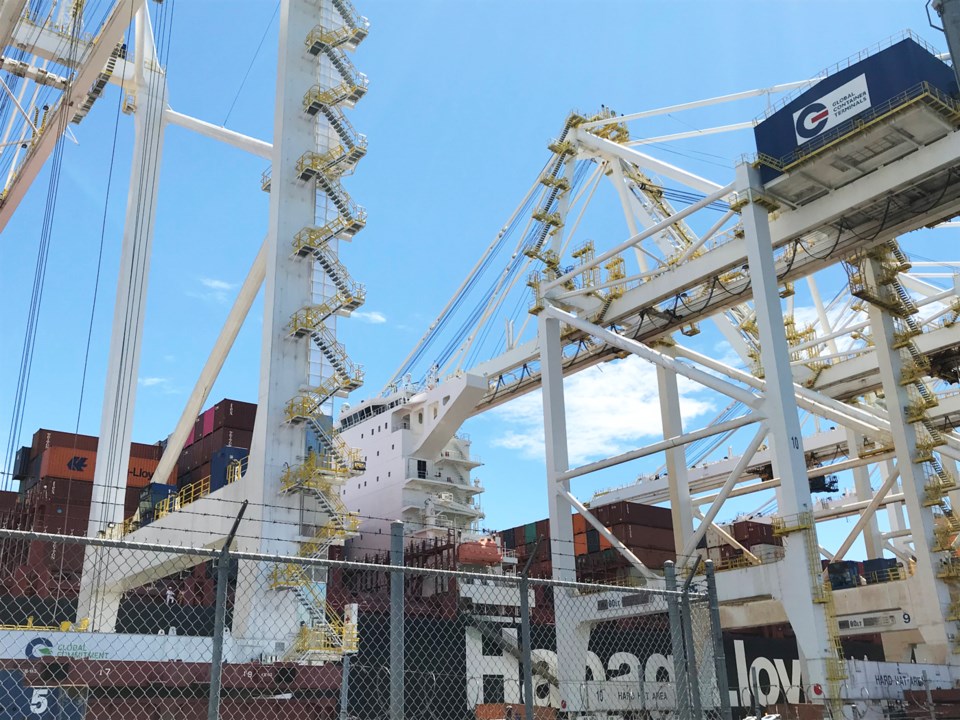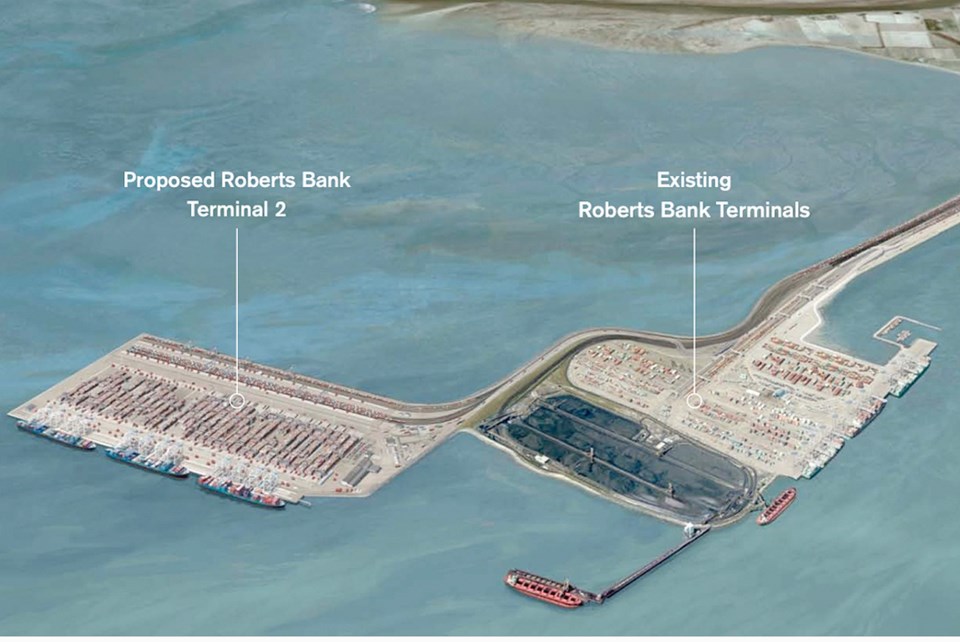The Port of Vancouver is encouraged a federal independent review panel has seen the positives of trade-enabling port expansion at Roberts Bank.
Duncan Wilson, the port’s vice-president of environment, community and government affairs, in an interview with the Optimist this week said the panel’s final report, made public last week, was pretty much what the port authority had anticipated.
The report notes construction and operation of the proposed project do not pose major technical challenges, and the project would enable an increase in container terminal capacity on Canada’s west coast, while also resulting in increased employment and business opportunities.
However, the lengthy document also listed residual and cumulative effects when comes to the environment.
Wilson noted the panel took a look at the potential effects but and the port is pleased it also provided recommendations on mitigation, measures that the port is either planning or can implement.
“A lot of their recommendations are consistent with what we expected. You’ll note that a lot of the work that the port has been doing over the last number of years has been in anticipation of some of these things,” he said.
“So, for example, the millions of dollars we’ve invested in the eco-program to study the impact of marine shipping on at-risk whales and to implement mitigations for those. That was done with the view this was an issue we would need to deal with and need to get ahead of it. I think the panel recommendations are every consistent with that and they recognized our expertise in building habitats, which is really important. A lot of the heavy-lifting will be those offsetting measures and the recognition of the port’s expertise is welcome, and, of course, we look forward to working with indigenous communities and with the agencies like DFO putting together plans that are offsetting,” said Wilson.
The proposed new three-berth container terminal would be built on a man-made island adjacent to the existing Deltaport container terminal at Roberts Bank.

The port authority states, ‘After many years of environmental study conducted by independent experts, we are confident in the information we have provided throughout the environmental assessment, and in our conclusion that the project and marine shipping associated with the project will not have any adverse effects to the environment that cannot be mitigated.’
“We’re also really glad that they agreed with our assessment that the location of the project is the best possible option. It shows the panel recognizes why it’s important to advance the project and, really important for us, it validated the precise location we chose based on the feedback we got from Fisheries and Oceans and other agencies over the years,” he added.
The port authority has maintained T2 is needed to handle an expected increase in container shipments on Canada’s west coast.
“I think it’s really important to recognize that this project is more important than ever. We’re looking at managing Canada’s ability for trade and movement of goods like food, pharmaceuticals, medical and safety products and other things. It emphasis the need to have our own container capacity here in Canada and not have to rely on U.S. ports, for example. When we come out of the COVID crises, given the significant toll it’s going to have on the economy, I think major infrastructure projects like Terminal 2 will also provide an economic stimulus which is going to be critical for the country during the recovery period,” added Wilson.
The Impact Assessment Agency of Canada, a division of Environment and Climate Change Canada, will review the report and attach potential conditions of approval.
Wilson said the agency works with proponents to find solutions to recommendations put forward.
The federal environment minister is decide whether the project is still likely to have adverse environmental effects, taking mitigation into account, but it would be up to cabinet to decide whether those effects are justified.
The post-panel phase was originally scheduled to take five months.
The next phase also includes consultation including gathering input from First Nations, but Wilson noted that due to the COVID-19 situation and potential challenges with those consultations, a final report will likely be delayed by three months and released in September.
The B.C. government, meanwhile, is conducting a harmonized environmental assessment process and will be using the information from the federal process to make its own decision.
The B.C. Environmental Assessment Office must make a recommendation to provincial ministers within 30 days of receiving notice of the federal decision.



